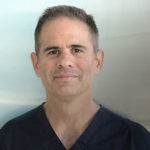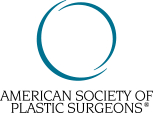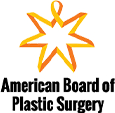
Posted by Laurence Weider on February 28, 2024
Labiaplasty, a surgical procedure designed to modify the size or shape of the labia minora or labia majora, requires careful consideration and understanding of associated risks and potential complications. While complications are uncommon, it is essential for individuals to be well-informed about all aspects of the procedure before making a decision.
Common Risks Associated with Labiaplasty
Infection
Infections at the surgical site are a risk with any procedure. Proper wound care and the administration of antibiotics help minimize this risk. Creating a sterile surgical environment and prioritizing hygiene further reduces the likelihood of complications such as an infection.
Bleeding
Excessive bleeding during or after surgery is rare but possible. To mitigate this risk, surgeons employ techniques such as electrocautery to control bleeding during the procedure. Patients are typically advised to limit physical activity during recovery to reduce the likelihood of postoperative bleeding.
Scarring
While surgical efforts aim to minimize visible scarring, some degree of scarring is inevitable. Strategic placement of incisions and meticulous suturing techniques can help reduce the appearance of scars, although individual healing factors play a significant role.
Changes in Sensation
Labiaplasty can lead to temporary changes in sensation, such as numbness or hypersensitivity, in adjacent tissues. These changes typically resolve over time. Surgeons avoid operating on the clitoris directly during labiaplasty, preserving sexual sensation. In rare cases, areas of numbness may be permanent.
Asymmetry
Achieving perfect symmetry between the labia minora or majora is challenging, and minor asymmetry may result. While efforts are made to achieve balance, significant asymmetry may necessitate revision surgery.
Dissatisfaction with Results
Some patients may be dissatisfied with the aesthetic outcomes of the procedure, even when it is performed skillfully. Clear communication during the consultation phase about realistic goals and expectations helps minimize this risk.
Wound Healing Issues
Delayed wound healing or tissue loss due to poor blood flow is rare. If such issues arise, they may require specialized wound care or additional surgical intervention.
Critical Considerations for Candidates
A comprehensive consultation with a qualified surgeon is essential for individuals considering labiaplasty. During these discussions, patients are encouraged to disclose their complete medical history, including any use of nicotine-containing products or marijuana, as these can impact surgical outcomes.
The Role of Nicotine in Healing
Nicotine use, whether through cigarettes or e-cigarettes, increases the risk of wound healing complications and infection. Open communication about nicotine consumption is vital to planning a safe and successful procedure.
Conclusion: The Importance of Informed Decision-Making
Labiaplasty can offer significant benefits, but it is crucial to understand the associated risks and maintain realistic expectations. Thorough consultations and transparent communication between the patient and surgeon ensure that each individual’s unique anatomy and goals are considered.
If you are considering labiaplasty and would like to learn more about the procedure or discuss your specific concerns, I encourage you to schedule a consultation with us at Weider Plastic Surgery. Your safety, satisfaction, and overall well-being are my top priorities. Take the first step toward making an informed decision by contacting my Dallas office, and together we can begin your labiaplasty journey with confidence.
Dr. Weider, a native of Southern California, is a Board-Certified Plastic Surgeon who has maintained a private practice in Dallas, TX since 1999. After attending Stanford University, he obtained his medical degree (M.D.) from Baylor College of Medicine in Houston. He then completed a one year surgical internship in Los Angeles at Harbor-UCLA Medical Center, followed by a four year general surgery residency in Dallas at Methodist Medical Center, and a two year plastic surgery fellowship in Cleveland at Case Western Reserve University.







